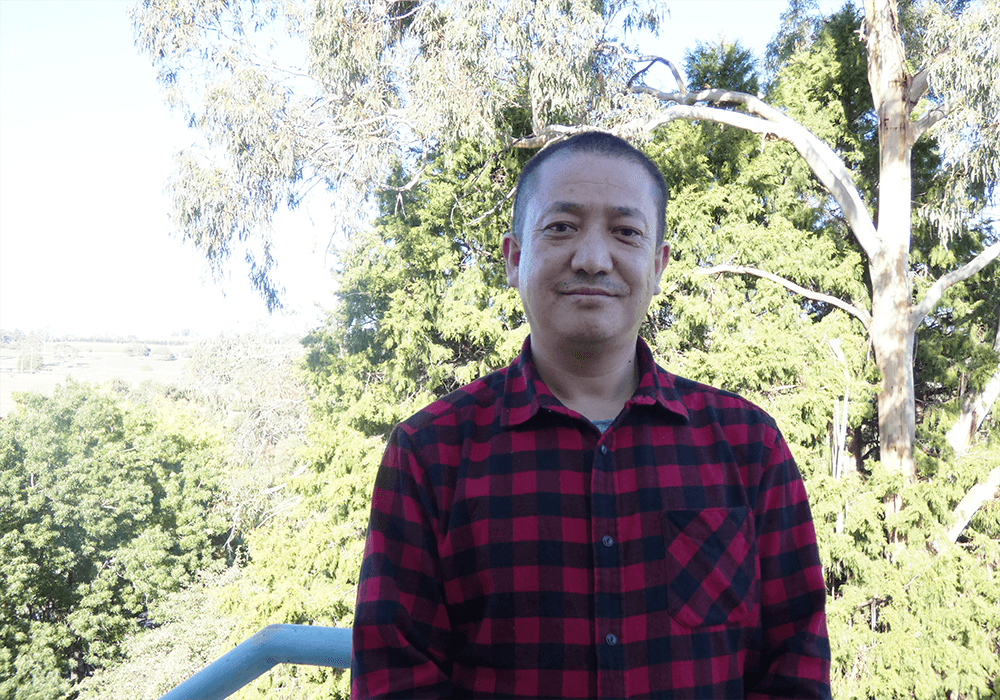Can you teach happiness? A former school principal and UNE education PhD candidate has left his home and livelihood to find out.
Kaka (who has just the one name) has always dreamt big. He overcame the challenges of his humble beginnings – he’s one of 10 children from a family in a small Bhutanese agricultural community – to become a school principal and district superintendent in the Department of Education, Bhutan.
But, passionate about both the principles of happiness and education, he’s made some difficult decisions to enable a move to Armidale for a PhD so he can continue his “service to humanity”.
“To complete a PhD in Australia is not easy. I had to resign from my job and take a huge loan to pursue my PhD. I am now studying full-time and working part-time as a cleaner,” Kaka says.
Why? “The principles and philosophies of the Gross National Happiness (GNH) index have shaped Bhutan’s economic and social policy. But how can GNH be sustainable if the same principles of happiness and holistic wellbeing are not included in education policy?”
“I want to develop both a literacy and leadership framework to be used by educators – principals and teachers – to help them integrate, infuse and promote GNH in their teaching activities and leadership practices.”
Kaka says it’s about promoting a lifelong and sustainable ‘leadership of self’, partly driven by Eastern Buddhist philosophy. He hopes the frameworks can be adopted internationally.
From here – the very beginning of his PhD journey – Kaka acknowledges things may change along the way. In fact, there’s already been some interesting twists and turns.
“I went to YouTube just to relax and take a break from a literature review on GNH. I accidentally came across a video just posted by the Bhutan Broadcasting Service where a group of Harvard graduates led by a Bhutanese had been to Bhutan to study GNH! I wasn’t looking for this, I was just taking a break!
“I happened to be Facebook friends with the Bhutanese leader of the delegation, and I contacted him to ask him for a report on the findings. He told me about an upcoming conference at Harvard University where I could share my interest area.”
With the support of his PhD supervisors at UNE, Dr Brian Denman and Dr Nadya Rizk, he sent an abstract on his first publication topic to the conference organisers. It was accepted.
“I never dreamt to go there! I never even planned it!” he says.
With Dr Denman and Dr Rizk’s support and motivation, he’s also secured the funding he needs to get to Harvard and present his paper on a topic he’s clearly passionate about. So, what does he believe happiness is about?
Well, he says it’s often misconstrued as a fleeting moment – ‘relative happiness’ in Buddhism. True happiness, he says, takes knowledge, skills, training and practise.
“Relative happiness is a short-lived moment of merrymaking. But ultimate happiness means you’re able to keep calm, no matter what. It’s about training your mind to become very emotionally stable.
“You don’t need to be a billionaire. Happiness is about having a decent life where you can manage your psyche, emotionally connect with the people around you and with nature, and not harm others.
“So long as people regard you as a friend, and someone that can be trusted, and you have this basis to your identity, you can be happy. It just takes practise.”



Recent Comments